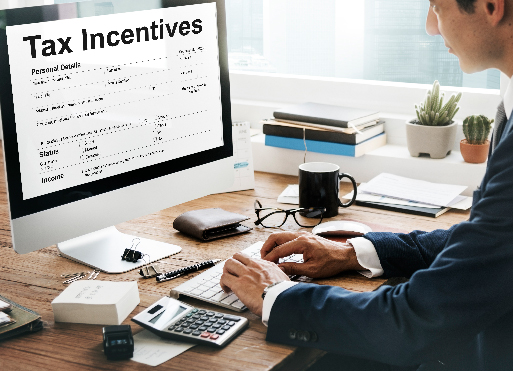
4 Ways To Save On Taxes With Mutual Funds
Here are 4 ways you can save taxes with mutual funds:
Choose an ELSS
Equity Linked Savings Scheme (ELSS) is a type of tax-saving mutual fund scheme. Investments into ELSS qualify as a deduction from your taxable income under Section 80C of the Income Tax Act. The maximum deduction you can avail of is Rs.1.5 lakh. So, if you fall in the 30% tax bracket and you invest Rs.1.5 lakh in an ELSS, you can reduce your tax liability by Rs. 45,000 plus applicable cess - a considerable amount.
Moreover, the returns earned from ELSS are tax-free up to Rs. 1 lakh. If the returns are higher than Rs.1 lakh, tax is applicable only on the excess return at 10%.,. This is subject to the limit not being utilised in other capital gains in that particular financial year.
Pro Tip: ELSS is an equity-oriented mutual fund scheme, with a lock-in period of 3 years - both for lumpsum and systematic investment plans. Do note that each SIP instalment is locked-in for 3 years. To illustrate, assuming your first SIP is deducted on January 1, 2022, and the second instalment is deducted on 1 February 2022, only a certain portion of units (which have completed 3 years) will be eligible for redemption. In this case, the first SIP instalment can be redeemed on January 1, 2025. Similarly, the second SIP instalment can be redeemed on February 1, 2025. So carefully assess your risk profile and investment horizon when investing in ELSS mutual funds.

Hold on to your equity investments for at least a year
In the case of equity mutual funds, taxation of returns depends on the investment tenure. If you hold your mutual fund investment for at least 12 months, the returns earned become long-term capital gains. Such gains are tax-free up to a limit of Rs.1 lakh. If you hold on to your equity investment for a year, your returns can thus save on tax. Even if the returns exceed Rs.1 lakh, you pay tax only on the excess at a marginal rate of 10%.
Pro tip: Even short-term capital gains, i.e. those earned within 12 months, are taxed at only 151%So equity schemes, on the whole, can be considered tax efficient

Use the indexation benefit
Indexation benefit is allowed in the case of returns earned from debt funds, provided you stay invested for at least 36 months i.e. long term capital gains. This benefit takes inflation into account when assessing the returns earned. The investment amount is adjusted against inflation to find the real value of the returns. As such, the amount of taxable return reduces, thus reducing your tax liability. Moreover, as per income tax rules, long-term returns from debt funds are taxed at 20% with indexation benefits. This reduces the tax payable on such returns, making debt funds tax-efficient.
Pro Tip: If you redeem your debt investments within 36 months, the returns earned would be called short-term capital gains. Such gains would be taxed at your slab rates. Try holding on to your debt mutual funds for more than 36 months to reap the indexation benefit and 20% tax rate².

Opt for growth plans
All mutual funds offer two options: growth and dividend. If you are seeking regular cash flows, you can opt for dividends. If you have chosen dividend option, be mindful that dividends are paid back to you out of your capital or investible surplus. This eats into your potential for earning compounding growth as your capital depletes due to dividend payouts over the tenure of your investment. Dividends received by you are taxed at your slab rates. Moreover, dividends are not guaranteed.
Pro Tip: It is advisable to opt for growth plans if you wish to grow your investments over the long-term. Additionally, opting for growth plans help you get a favourable tax treatment of long-term capital gains, which are tax-free up to Rs. 1 lakh.

A little planning can go a long way in saving tax. Deploy your mutual fund investments wisely to reduce your tax liability. Consult a financial advisor, who will help you pick the right mutual fund schemes and plan your taxes better.
Source:
1. https://www.livemint.com/money/personal-finance/tips-on-how-to-manage-income-tax-on-earnings-from-mutual-funds-11624343389166.html
All the Mutual Fund investors have to go through a one-time KYC (Know Your Customers) process. Investor should deal only with the Registered Mutual Funds (RMF). For more info on KYC, RMF and procedure to lodge/redress any complaints, visit https://www.pgimindia.com/mutual-funds/ieid.
MUTUAL FUND INVESTMENTS ARE SUBJECT TO MARKET RISKS, READ ALL SCHEME RELATED DOCUMENTS CAREFULLY. Read more








